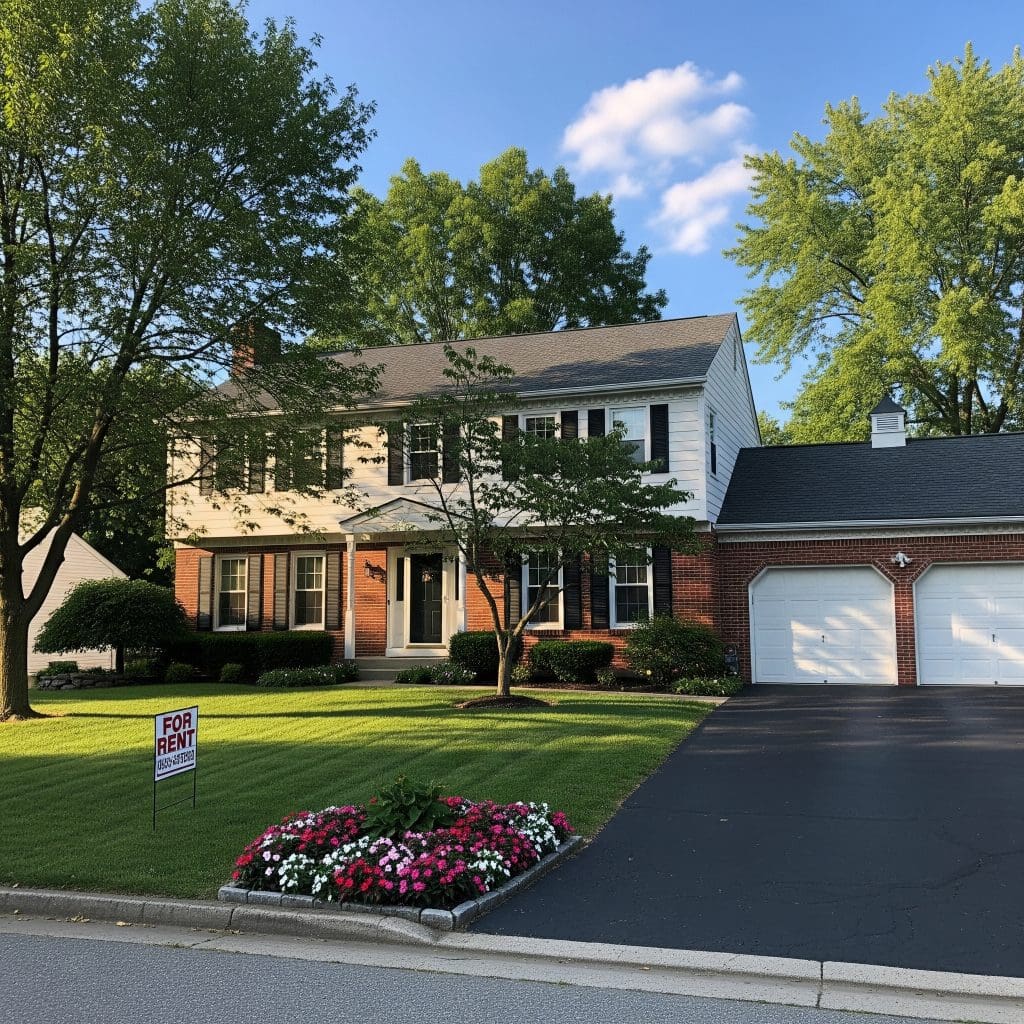Major Tax Benefits of Owning Rental Properties: Pennsylvania Investor’s Guide
Philadelphia – October 1, 2025: For real estate investors in Pennsylvania, the financial rewards of owning rental properties extend far beyond monthly rental income. The major tax benefits of owning rental properties can significantly increase long-term wealth by lowering your taxable income and enhancing returns.
- Major Tax Benefits of Owning Rental Properties: Pennsylvania Investor’s Guide
- 1. Mortgage Interest Deduction
- 2. Depreciation Benefits
- 3. Operating Expense Deductions
- 4. Pass-Through Deductions (QBI)
- 5. 1031 Exchange for Capital Gains Deferral
- 6. Bonus Depreciation & Cost Segregation
- Current Market Insights for Pennsylvania Investors
- Pennsylvania Geo-Targeting Opportunities
- External Resources for Pennsylvania Investors
- Q&A: Major Tax Benefits of Owning Rental Properties
- Why GHC Funding is the Go-To Lender for Pennsylvania Investors
- Final Thoughts
- Call to Action
- Get a DSCR loan quote in Pennsylvania.
- Download Tax Benefit Maximization Checklist (PDF)
From Philadelphia (19103) to Pittsburgh (15222), Harrisburg (17101), and Allentown (18101), investors across Pennsylvania are leveraging real estate not only as a source of cash flow but also as a powerful tax strategy. This guide outlines the most impactful tax benefits, current financing options through GHC Funding, and market insights to help you maximize profitability.
Pennsylvania Investor’s Guide
- 1. Mortgage Interest Deduction
- 2. Depreciation Benefits
- 3. Operating Expense Deductions
- 4. Pass-Through Deductions (QBI)
- 5. 1031 Exchange for Capital Gains Deferral
- 6. Bonus Depreciation & Cost Segregation
- Current Market Insights for Pennsylvania Investors
- Pennsylvania Geo-Targeting Opportunities
- External Resources for Pennsylvania Investors
- Q&A: Major Tax Benefits of Owning Rental Properties
- Why GHC Funding is the Go-To Lender for Pennsylvania Investors
- Final Thoughts
- Call to Action
- Get a DSCR loan quote in Pennsylvania.
- Download Tax Benefit Maximization Checklist (PDF)
1. Mortgage Interest Deduction
One of the largest deductions for Pennsylvania landlords is mortgage interest. Whether financing through conventional or DSCR loans from GHC Funding, the interest paid on investment property mortgages is fully deductible. For investors with multiple properties, this adds up quickly, significantly reducing taxable income.
Need capital? GHC Funding offers flexible funding solutions to support your business growth or real estate projects. Discover fast, reliable financing options today!
⚡ Key Flexible Funding Options:
GHC Funding everages financing types that prioritize asset value and cash flow over lengthy financial history checks:
DSCR Rental Loan
- No tax returns required
- Qualify using rental income (DSCR-based)
- Fast closings ~3–4 weeks
SBA 7(a) Loan
- Lower down payments vs banks
- Long amortization improves cash flow
- Good if your business occupies 51%+
Bridge Loan
- Close quickly — move on opportunities
- Flexible underwriting
- Great for value-add or transitional assets
SBA 504 Loan
- Low fixed rates through CDC portion
- Great for construction, expansion, fixed assets
- Often lower down payment than bank loans
🌐 Learn More
For details on GHC Funding's specific products and to start an application, please visit our homepage:


2. Depreciation Benefits
Depreciation allows investors to write off the cost of a rental property (excluding land) over 27.5 years for residential and 39 years for commercial assets. In cities like Pittsburgh, where older multifamily homes are prevalent, depreciation can shield thousands of dollars in income annually—even if property values appreciate.
3. Operating Expense Deductions
Pennsylvania landlords can deduct a wide range of operating costs, including:
- Property management fees
- Repairs and maintenance
- Insurance premiums
- Utilities (if paid by the landlord)
- Travel expenses related to property oversight
These deductions reduce taxable rental income while covering real costs of ownership.
4. Pass-Through Deductions (QBI)
Under the Qualified Business Income Deduction, many Pennsylvania investors structured as LLCs can deduct up to 20% of net rental income. This benefit can create significant tax savings when properly structured with the right entity.
5. 1031 Exchange for Capital Gains Deferral
When selling a Pennsylvania rental property, investors can use a 1031 exchange to defer capital gains taxes by reinvesting in another like-kind property. For example, trading a duplex in Harrisburg for a larger multifamily in Philadelphia allows investors to build wealth without triggering immediate tax liability.
Test Your Expertise: The Complexities of the 1031 Exchange

As a sophisticated real estate investor, you understand that the 1031 Exchange is a cornerstone strategy for tax deferral and wealth accumulation. But beyond the basics, the intricacies of the 1031 Exchange rules can pose significant challenges. This quiz is designed to test your in-depth knowledge and highlight critical nuances that separate casual investors from true experts in 1031 Exchange transactions.
Instructions: Choose the best answer for each question.
6. Bonus Depreciation & Cost Segregation
Sophisticated investors may use cost segregation studies to accelerate depreciation, writing off fixtures, appliances, and renovations faster. In high-rent areas like Center City Philadelphia, this strategy can free up more cash flow early in ownership.
Current Market Insights for Pennsylvania Investors
Interest Rates (as of October 2025):
- DSCR Loans: 7.25% – 8.5% (qualify based on rental income, not personal W-2s)
- Bridge Loans: 9% – 11.5% (short-term, ideal for renovations and flips before refinancing)
- SBA 7a Loans: Prime + 2.75% (~11.25%)
- SBA 504 Loans: 6.75% – 7.5% fixed long-term
DSCR Loan Requirements:
- No tax returns required – based on property cash flow
- LTV up to 80%
- Minimum DSCR: 1.0 – 1.25
- Eligible properties: Single-family rentals, duplexes, triplexes, fourplexes, and small multifamily
- Entities accepted: LLCs, corporations, and partnerships
Pennsylvania Geo-Targeting Opportunities
- Philadelphia (19103, 19107): Strong appreciation potential in Center City and surrounding neighborhoods.
- Pittsburgh (15222, 15219): Affordable multifamily properties with stable tenant demand from healthcare and education sectors.
- Harrisburg (17101, 17102): Government employment base creates consistent rental demand for small multifamily units.
- Allentown (18101, 18102): Rapid growth in Lehigh Valley makes turnkey rentals attractive.
- Erie (16501): Lower property values create accessible entry points for first-time investors.
Quiz on Pennsylvania Rental Property Laws

This quiz is designed to test your knowledge of the key laws and regulations for owning and managing a Pennsylvania rental property. By understanding these rules, you can ensure legal compliance and a positive landlord-tenant relationship.
External Resources for Pennsylvania Investors
- Pennsylvania Real Estate Commission – Licensing and compliance
- Pennsylvania Association of Realtors – Market trends and investor resources
- Philadelphia Real Estate Investors Association – Networking and local market insights
- PA Department of Revenue – State tax guidance for landlords
- Allegheny County Real Estate Portal – Market data for Pittsburgh-area investors
Test Your Pennsylvania Investor Prowess!

Pennsylvania, often called the "Keystone State," holds a unique place in American history and its economy. From the historic streets of Philadelphia to the industrial legacy of Pittsburgh and the scenic beauty of its mountains, Pennsylvania offers diverse opportunities for real estate investors. If you're considering expanding your portfolio in this foundational state, especially with flexible financing options like no income verification rental property loans for new investors, understanding its key characteristics is a valuable asset.
How well do you know the state that truly is the keystone of America? Take our quick quiz!
Q&A: Major Tax Benefits of Owning Rental Properties
Q1: Can I deduct mortgage interest on rental properties in Pennsylvania?
A: Yes, mortgage interest is one of the largest tax deductions for landlords.
Q2: How does depreciation reduce my taxes?
A: Depreciation allows you to deduct a portion of your property’s value each year, lowering taxable income.
Q3: Do I need an LLC to claim tax benefits?
A: While not required, LLCs often enhance liability protection and may qualify you for QBI pass-through deductions.
Q4: Can I use a 1031 exchange in Pennsylvania?
A: Yes—you can sell a Pennsylvania property and defer taxes by reinvesting in another like-kind property anywhere in the U.S.
Q5: How do DSCR loans help with tax strategies?
A: DSCR loans from GHC Funding qualify based on rental income, allowing you to scale faster while still leveraging tax deductions like depreciation and interest.
Q6: What happens if I sell my rental property without a 1031 exchange?
A: You’ll owe capital gains taxes on the profit, but strategies like depreciation recapture and installment sales may reduce the impact.
Q7: Are short-term rentals eligible for tax benefits?
A: Yes—Airbnb and VRBO rentals in Pennsylvania can also qualify for many of the same deductions if structured properly.
Why GHC Funding is the Go-To Lender for Pennsylvania Investors
- Flexible Underwriting: DSCR-based approvals—no W-2s or tax returns needed
- Speed: Close within 30–45 days in competitive markets like Philadelphia
- Diverse Financing: DSCR loans, SBA 7a, SBA 504, bridge loans, and alternative financing solutions
- Local Knowledge: Expertise across Pennsylvania—from urban centers like Pittsburgh to growing mid-markets like Allentown
Final Thoughts
The major tax benefits of owning rental properties make real estate one of the most effective wealth-building strategies for Pennsylvania investors. From mortgage interest and depreciation to 1031 exchanges and QBI deductions, these tax advantages can dramatically improve ROI.
By partnering with GHC Funding, investors can leverage flexible financing options that maximize both cash flow and tax benefits, ensuring long-term portfolio growth.
Call to Action
👉 Ready to maximize the tax benefits of owning rental properties in Pennsylvania?
Visit GHC Funding or call 833-572-4327 today to explore DSCR loans, SBA financing, bridge loans, and alternative real estate funding solutions.
Get a DSCR loan quote in Pennsylvania.
Download Tax Benefit Maximization Checklist (PDF)
Get a No Obligation Quote Today.
Use these trusted resources to grow and manage your small business—then connect with GHC Funding
to explore financing options tailored to your needs.
GHC Funding helps entrepreneurs secure working capital, equipment financing, real estate loans,
and more—start your funding conversation today.
Helpful Small Business Resources

